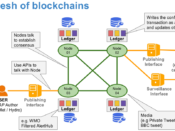 Picking up from the discussion on Alerthub, back in 2016 in Bangkok, we developed a hook to update our repository whenever the WMO Register of Alerting Authorities had change; the data can be visualized on our website. The parsed data, from the Register, gave us the CAP feed URLs. Those Atom/RSS feeds were activated in SAMBRO to begin collecting alerts generated around the world; stored in cap.sahana.io database.
Picking up from the discussion on Alerthub, back in 2016 in Bangkok, we developed a hook to update our repository whenever the WMO Register of Alerting Authorities had change; the data can be visualized on our website. The parsed data, from the Register, gave us the CAP feed URLs. Those Atom/RSS feeds were activated in SAMBRO to begin collecting alerts generated around the world; stored in cap.sahana.io database.
 Updates to the SAMBRO Alerthub EDEN template where presented at the “Filtered Alerthub” side event; among experts, of the 2018 CAP Implementation Workshop; titled “Towards an Interplanetary Alert Network: Clean up your CAP” (the slide deck). Inspiration largely by Wade Witmer Deputy Director, IPAWS, FEMA – “Aggregation without Authentication” – a decentralized and trusted (immutable & consensus) alert network, Art Botterell proposed that we investigate Blockchain.
Updates to the SAMBRO Alerthub EDEN template where presented at the “Filtered Alerthub” side event; among experts, of the 2018 CAP Implementation Workshop; titled “Towards an Interplanetary Alert Network: Clean up your CAP” (the slide deck). Inspiration largely by Wade Witmer Deputy Director, IPAWS, FEMA – “Aggregation without Authentication” – a decentralized and trusted (immutable & consensus) alert network, Art Botterell proposed that we investigate Blockchain.
This paradigm would be an alternative to the centralized WMO Filtered Alerthub. However, we acknowledge that WMO has a treaty responsibility to get member states to issue CAP messages and then extend them for consumption. We wanted to take that further to invite other data streams to contribute; which lead to the a blockchain model.
 We developed a prototype CAP-based blockhain using Linux Foundation’s Hyperledger Fabric. It uses Kafka for distributed storage. We were convinced that Hyperledger was too bulky for what we wanted to achieve; nevertheless, it was a great platform to learn and pilot blockchain technology. Our current thinking is that the architecture can be reduced to work on IPFS technology with a well indexed or classified presentation of alerts.
We developed a prototype CAP-based blockhain using Linux Foundation’s Hyperledger Fabric. It uses Kafka for distributed storage. We were convinced that Hyperledger was too bulky for what we wanted to achieve; nevertheless, it was a great platform to learn and pilot blockchain technology. Our current thinking is that the architecture can be reduced to work on IPFS technology with a well indexed or classified presentation of alerts.
The challenge was in developing a taxonomy. We began analyzing CAP messages accumulated in the cap.sahana.io database. The results were unsatisfactory with a lot of CAP messages violating the CAP policies and procedures. This made it difficult to work with the unclean CAP messages. These finds of inconsistencies were shared with experts at the Filtered Alerthub side meeting. OASIS was very interested in the findings.


Leave a Reply